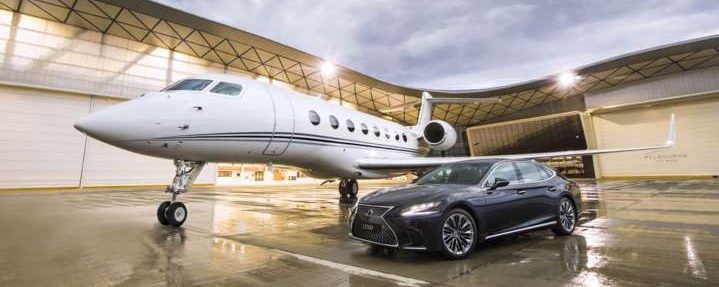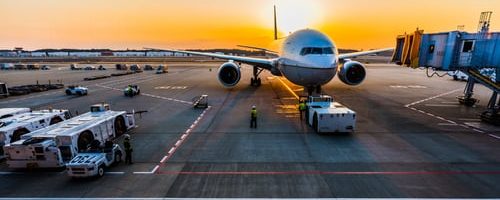Aviation

One of the aviation markets in the world with the quickest growth is the Indian market. Over the past three years, India’s civil aviation sector has experienced some of the nation’s fastest growth. India has overtaken the UK to become the third-largest domestic aviation market in the world, and by 2024 is predicted to surpass it. To cater to the rising air traffic, the Government of India has been working towards increasing the number of airports. As of 2020, India had 153 operational airports.
India has envisaged increasing the number of operational airports to 190-200 by FY40. Further, the rising demand in the sector has pushed the number of airplanes operating in the sector. The number of airplanes is expected to reach 1,100 planes by 2027. However, given that air travel is still expensive for the bulk of the population of the nation, of which approximately 40% is the upwardly mobile middle class, India’s aviation business remains mostly unexplored with enormous development potential.
To execute effective and sensible policies that will strengthen India’s civil aviation business, industry players should interact and work together with policymakers. India would be well-positioned to realize its aim of being a leader in the aviation industry with the appropriate legislation and a constant emphasis on quality, cost, and passenger interest.
Our Services
At KSK, we have a team of Aviation Lawyers in India who possess deep expertise in aviation-related matters ranging from commercial to dispute resolution. We assist our clients with:
- Liability and insurance matters
- Aircraft and engine leases
- Aviation finance related to aircraft and engine
- Sale, maintenance, and handling agreements
- Taxation
- Mergers, acquisitions, and investment
- Labour law matters
- Compliance related issues
Key Highlights
- Aircraft and Engine Leases: Assisting clients in navigating complex leasing arrangements for aircraft and engines.
- Crafting agreements to facilitate seamless operations in the sale, maintenance, and handling of aviation assets.
- Mergers, Acquisitions, and Investment: Legal counsel for strategic business moves, including mergers, acquisitions, and investments.
- Compliance-Related Issues: Ensuring adherence to industry regulations and compliance requirements.
Key Professionals
Related Practice Areas
FAQs
Which Statutory And Regulatory Provisions Control India's Aviation Industry?
In India, the following laws primarily govern the civil aviation industry:
The manufacture, ownership, sale, usage, operation, export, and import of aircraft are all subject to regulations under the 1934 Aircraft Act and the 1937 Aircraft Rules.
The Airports Authority of India was created under the Airports Authority Act of 1994. (AAI). All government airports in India must be developed, financed, operated, and maintained by the AAI.
The Directorate General of Civil Aviation (DGCA) issues the Civil Aviation Requirements, which establishes rules for authorizations and licenses.
The rights and obligations of carriers, passengers, consignors, consignees, and other people are governed by the Carriage by Air Act, 1972.
The different safety and security requirements for aerodromes and aircraft in India have been outlined in the Aircraft (Security) Rules, 2011.
The Airports Economic Regulatory Authority of India Act, 2008 establishes regulations for the tariffs and fees levied by airports in India for their different services.
What Bodies Are In Charge Of Upholding The Relevant Laws And Rules?
In order to grow and regulate the civil aviation industry in India, national policies and programs must be developed by the Ministry of Civil Aviation (MoCA). By exerting administrative control over affiliated and independent organizations, such as the Bureau of Civil Aviation Security, the AAI, the AERA, the DGCA, and the AAI. The MoCA is generally supportive of the many players in the Indian aviation business, as is the aviation regulator, the DGCA.
What Permits Are Required To Offer Aviation Services In India?
An operator must apply for and be granted an air operator permit by the Directorate General of Civil Aviation (DGCA) in order to provide air transportation services (AOP). This authorization serves as a substitute for the air operator certificate required to be issued by an ICAO member state. The type of licence requested will be determined by the operator’s type of air transportation service, not the routes it plans to fly. The following categories of air transportation services are eligible for an AOP: air freight services, scheduled commuter air transport services, non-scheduled air transport services, and scheduled passenger air transport services.
What Are The Key Safety Standards Applicable In The Indian Aviation Market?
The safety regulations followed by operators in India are governed by the Directorate General of Civil Aviation (DGCA). These adhere to the safety standards, rules, and advised practices of the International Civil Aviation Organization.
The different safety standards that operators must adhere to are described in the Aircraft Rules in Part II (General Conditions of Flying), Part III (General Safety Conditions), and Part IV (Airworthiness). Prior to flying the aircraft, the operator must, among other things, seek a certificate of airworthiness (CoA) from the DGCA. After the DGCA has determined that the aircraft: satisfies the minimal engineering, inspection, and maintenance criteria, is safe to operate, and complies with safety standards.
An aircraft must be type certified, have its type certificate validated, or have its type certificate recognised by the DGCA in order to be eligible for the issuing of a CoA.
How Are Consumer Complaints In Relation To Aviation Services Taken Up In India?
To handle passenger complaints involving airline carriers, the DGCA put up the Air Sewa web portal/mobile application. Travelers may use AirSewa to file complaints and get information on flying in India. It is a project of the Indian government’s MoCA. Details about the airport. Several airports in India that offer all the services and amenities, such as aid for the disabled or unaccompanied minors, etc. The Consumer Protection Act of 2019 offers consumers an extra means of pursuing compensation for any shortcomings in airline service.




